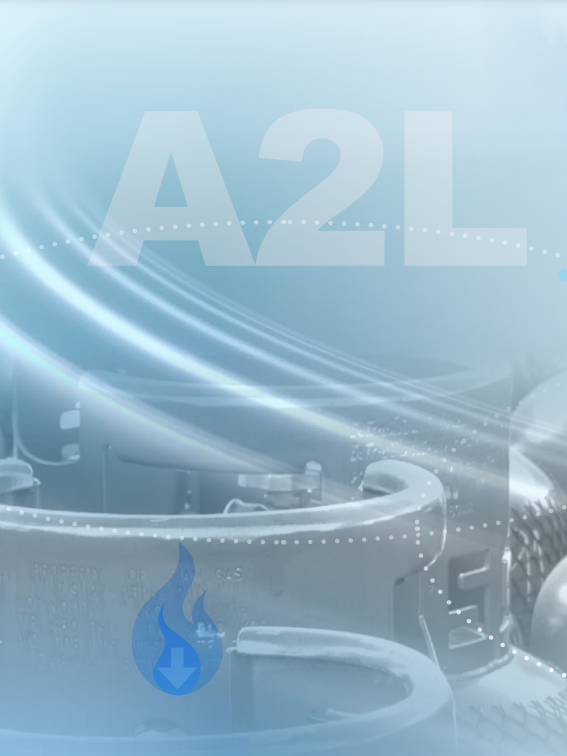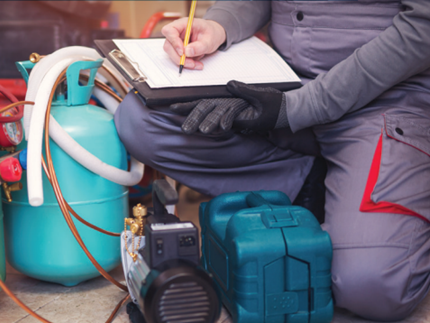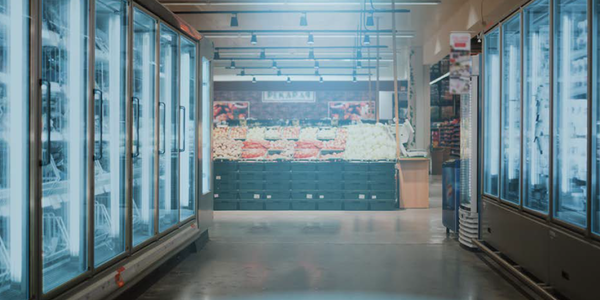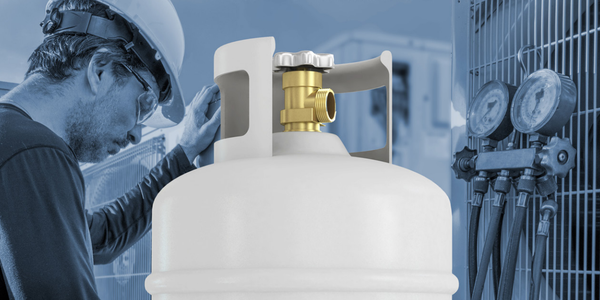Industry organizations, manufacturers and stakeholders are working together to prepare for the wider adoption of A2Ls. At Copeland, we are actively developing A2L-optimized compressors, condensing units and components to support the transition to lower-GWP refrigerants in commercial refrigeration and AC applications.

A2L Refrigerants in Commercial Refrigeration Applications
As the hydrofluorocarbon (HFC) refrigerant phasedown progresses rapidly around the globe and in the U.S., the retail supply chain is transitioning to the next generation of refrigerant alternatives with lower global warming potential (GWP). A2L refrigerants are among the leading emerging candidates capable of achieving the necessary GWP reductions.
In the United States, A2L adoption in commercial refrigeration is still in its early stages. Further regulatory approvals and updates to safety standards and building codes are currently underway to enable widespread industry adoption. Learn more about A2Ls in the commercial refrigeration sector.

A2L Refrigerants in Air Conditioning Applications
In many countries and/or regions around the world, A2L refrigerants are already approved for use in air conditioning (AC), heat pump (HP) and chiller applications. The approval process is underway in the U.S. The Environmental Protection Agency (EPA) has recently approved additional refrigerant options based on recently updated safety standards that would allow for the broader use of A2Ls.
A2L refrigerants are a new and relatively unknown commodity in the U.S. AC and HP sectors. With the stage set for wider A2L adoption in the coming years, many stakeholders have a variety of inquiries that need to be addressed. Learn more about A2Ls in air conditioning applications.
Copeland Optimizes Compressor Platforms for Use with A2L Refrigerants
Copeland is qualifying A2L refrigerants for its major product platforms to help customers achieve their sustainability goals and meet proposed refrigerant regulations as outlined by the EPA’s AIM Act.
Learn more about how Copeland is helping industry stakeholders transition to lower global warming potential (GWP) refrigerants in our latest press release.
Documents
| Name | Languages | File Type | Link |
|---|---|---|---|
| Copeland product platforms refrigerant cross-reference | English | Download |




